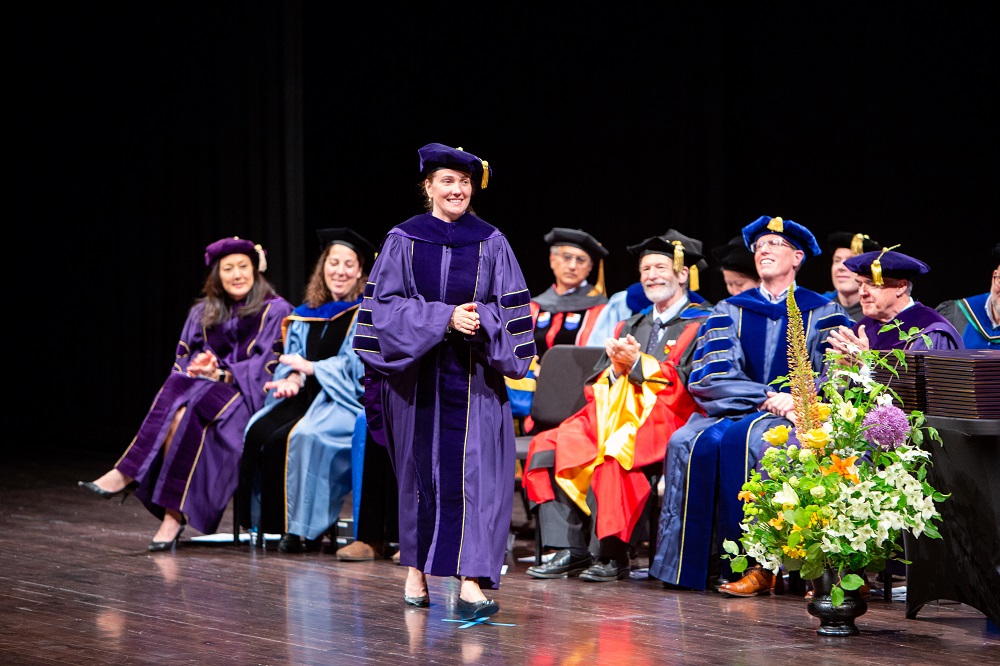Intellectual Capital
…or, why it matters that the Foster School is among the world’s most influential producers of research, across business disciplines
 Business school rankings are an imbroglio of art, science and mystery, each derived from a proprietary formula of wildly varying quantitative and qualitative measures.
Business school rankings are an imbroglio of art, science and mystery, each derived from a proprietary formula of wildly varying quantitative and qualitative measures.
Rankings of research performance, by contrast, tend to be the product of simple math. These unambiguous calculations of papers and authors from thousands of b-schools around the world reveal three irrefutable facts:
1. Foster is an elite research institution.
The Foster School is ranked #6 in the world (and #1 among public universities) in the latest Financial Times research productivity ranking, the gold standard of scholarly indices, which tallies each school’s publications over the past three years in the 50 most-influential, peer-reviewed journals across every business discipline.
2. Foster’s research excellence is sustained.
Foster has been listed among the world’s top 25 in research every year since FT began tracking scholarly output. This includes a #24 ranking in 2014, #24 in 2015, #16 in 2016, #7 in 2017, #3 in 2018, #7 in 2019 and #6 in 2020.
3. Foster’s research excellence is comprehensive.
Rather than focus on one or two specialties, scholarly prowess is well distributed across academic departments and disciplines. Foster ranks:
- #4 in management research, according to the most recent Management Department Productivity Ranking.
- #10 in finance research, according to the 2020 Academic Ranking of World Universities.
- #12 in marketing research over the past four years, according to the Top 100 Business School Research Rankings.
- #13 in information systems and operations management research over the past three years, according to the Top 100 Business School Research Rankings.
- #16 in accounting research (#7 in financial accounting) over the past six years, according to BYU’s Accounting Rankings.
That’s strength from stem to stern. Plus, nearly a quarter of Foster faculty author textbooks and close to half serve on the editorial boards of top journals—multiplying the faculty’s influence exponentially.
That’s great! …But why does it matter?
Beyond the discovery of new management insights—no insignificant endeavor—there are several reasons why a powerhouse research faculty makes for a better business school.
Dean Frank Hodge distills it to one.
“Research is what keeps us on the cutting edge,” he says. “So, we’re not only teaching what was relevant last year or the year before. We’re actually leading the charge about what’s going to be relevant next year. This is what research faculty bring into the classroom.”
Research enhances the learning environment.
The scores of new Foster faculty hires over the past couple of decades represent the rarest of academics in the world: those who are equally adept at research and teaching.
This new generation is increasingly unsatisfied to simply publish in the leading journals (which they do). They also expedite the professional adoption of their findings through media outreach, through corporate consulting—through teaching.
Foster classrooms crackle with freshly discovered management insights.
“My colleagues are world-renowned scholars,” says Steve Sefcik, the PricewaterhouseCoopers Professor of Accounting and associate dean of undergraduate programs. “They are not reading the book the night before class. They may have done the research cited in the book—or even written the book.
“And, by the way, the fact that they’re the scholars creating this knowledge means that our students get it before the rest of the world.”
 Jarrad Harford is one who has written the book. Fundamentals of Corporate Finance, to be precise, though the Paul Pigott-PACCAR Professor of Finance also brings to his undergraduate finance courses his own influential research findings in in business valuation, corporate finance and governance, M&A and dividend payout policy. He’s far from alone.
Jarrad Harford is one who has written the book. Fundamentals of Corporate Finance, to be precise, though the Paul Pigott-PACCAR Professor of Finance also brings to his undergraduate finance courses his own influential research findings in in business valuation, corporate finance and governance, M&A and dividend payout policy. He’s far from alone.
Sarah McVay, the Deloitte & Touche Endowed Professor in Accounting, plugs her findings on internal controls, forecasting sales and “intentional earnings smoothing” directly into her classes in financial reporting and analysis. Masha Shunko, an associate professor of operations management, sows her expertise in queuing systems and efficient supply chains into teaching of supply chains and operations management that earned her the 2020 PACCAR Award for Excellence in Teaching. Chris Barnes, a professor of management and Evert McCabe Endowed Fellow, brings his singular expertise on the effect of fatigue in the workplace into his classes in organizational behavior. Nidhi Agrawal, the Michael G. Foster Professor of Marketing, turns her research identifying best practices to promote public health into her course on consumer behavior.
And that’s just to name a few.
“Really, all of our research faculty apply their findings to their teaching,” says Xiao-Ping Chen, the Philip M. Condit Endowed Chair in Business Administration and former associate dean of academic and faculty affairs. “It’s in our DNA.”
Research sparks educational innovation.
Some research faculty have built courses around an innovative stream of research. Others have created academic centers.
The 25-year old Consulting and Business Development Center coalesced around student consulting for minority owned small businesses guided by Thaddeus Spratlen, emeritus professor of marketing, and the bench-marking research of William Bradford, emeritus professor of finance and former dean.
In 2008, Bruce Avolio, the Mark Pigott Chair in Business Strategic Leadership, created the Center for Leadership and Strategic Thinking around his influential methods of accelerating leadership development—principles applied directly to Foster students and client organizations.
Rob Palmatier, a professor of marketing and John C. Narver Endowed Professor in Business Administration, formed the industry-serving Center for Sales and Marketing Strategy around his vast professional experience and award-winning research in relationship marketing.
And Hema Yoganarasimhan, a professor of marketing and Michael G. Foster Faculty Fellow, is currently designing a new Center for Customer Analytics around her expertise in this rapidly emerging field.
The proliferation of new specialty master’s degree programs at Foster also has been led by faculty expertise. The MS in Entrepreneurship, for example, was built on the best practices of new venture accelerators discovered by founding faculty director Ben Hallen, the Longbrake Endowed Professor in Innovation. And the MS in Business Analytics was spearheaded by big data specialist Oliver Rutz, the Marion B. Ingersoll Professor of Marketing.
Research creates a virtuous cycle.
As much as research enhances teaching, teaching often sparks new research ideas.
To wit, a series of papers on free cash flows by McVay and Jennifer Koski, the Kirby L. Cramer Endowed Chair in Finance, were inspired by a lively discussion in one of McVay’s accounting classes on Amazon’s evolving financial reporting practices.
The bottom line of this interplay between expert research and teaching is a more engaging learning experience. Because Foster’s high-caliber research is not only academically significant. It’s also relevant. To students. To managers. To policy makers.
“Good research is grounded in the real world,” says Koski, the current associate dean for academic and faculty affairs and three-time winner of the PACCAR Award for Excellence in Teaching. “My doctoral advisor used to say, ‘There are two types of academics: those who like the beauty and elegance of models for the sake of beauty and elegance, and those of us who want to understand how to do things better.’ ”
The Foster faculty, she argues, is filled with scholars in the latter camp. And the world is increasingly taking note.
